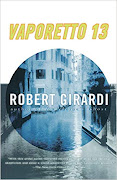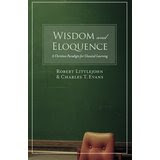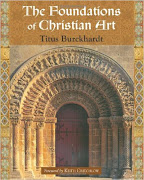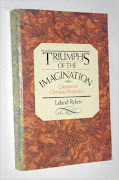ZEDS Blog
I enjoy the essays of Dafoe, Addison, and Samuel
Johnson, all of which were published in pamphlets. Pamphlets were in vogue from 1650-1800, providing writers a forum to express views on politics, society, religion, and art. This has been revived in modern times in the form of blogs.
This is now a slight revamp of my blog that started in 2008.
My reading has become a little more specialized, although previous books commented on show I was heading this direction. At this point I will review mainly Christian texts or other texts from a Christian perspective. I intend to post more regularly with book reviews.
I consider reading and writing as part of the spiritual
journey toward maturity and, I hope, wisdom. These are postings of what I’m learning along the way.
Rod Zinkel, August 19, 2015
As usual, I write for a time, then read for a time and do not post anything. I have not written essays of late, but I will write some impressions of books I've read, until I write something more substantial. So I will post some of these quick reviews here. Most are along the lines of Christian reading, though not limited to it. I encourage Christians to read, and not just Christian works. Just this month, as I teach Chip Ingram's book, Good to Great in God's Eyes, we are discussing great Christians read great books. So I'll post something of those great books as I come across them. I hope you might find something of interest.
The Alluring Woman: Robert Girardi's novel, Vaporetto 13.
The novel takes place in Venice, and the setting is
important to the story, as the city is sinking. The protagonist, Jack Squire,
is an American currency trader abroad, sent to get the inside scoop on the frequently
changing politics of Italy. Money is central because he deals in it; his pager
keeps him up on money changes globally. In Venice he meets a mysterious woman,
Caterina, who takes his mind off the money, because she knows there are more
important things. She talks of bygone periods as though from first-hand
experience, of days of the Barnabotti, of Paolo Sarpi, of political intrigue
and assassinations and of tragedy In Venice. Squire is fascinated by the woman
and her world, what little she reveals to him. He thinks of her to the point of
neglecting all else. Their meetings are always at night, as she must catch the early-morning
vaporetto (a water bus) back to the Lagoon. She is religious in her own way. She
is cool in her manner. And she is private, so much so that Jack must spy out
where she lives. She has only told him it would not be good for him to visit
because she has an overprotective father who would not allow the relationship.
Girardi is excellent in developing
the mysterious woman, giving enough to allure, as she does Jack Squire, and in
building suspense by Jack’s obsession to find out who this woman is. The
setting in Venice is beautiful, but also conveys the antiquated past eroding. Knowledge
of something of the history of Venice, and a map, are helpful in reading, but
not essential.
Warning: there is some sexual content, some strong language.
Wisdom and Eloquence,
by Robert Littlejohn and Charles T. Evans, describes a classical Christian
education, which is to say a liberal arts education by a pre-twentieth century
definition. The authors write of the importance of the trivium – grammar,
dialectic, and rhetoric, with their emphasis on rhetoric, and the quadrivium –
arithmetic, geometry, astronomy and music. The authors expand the quadrivium a
little more widely than the classical definition, as they include geography and
visual arts. They do not ignore math and science, and write of the Christian
student’s need for these subjects. Science is not opposed to Christianity: “The
overarching paradigm for a Christian education in the sciences is the
understanding that our worldview embraces the reality that our study of the
natural sciences is our window into God’s revelation of himself to his image-bearers
through his creation” (124-25). The culmination of science is theology and
philosophy, “toward which all our studies in the liberal arts has been building”
(127).
While the book is
largely the philosophy of education of the authors, they discuss practical
methods of the classical education. These include:
1. In early and middle years reading should be a large portion of
students’ studies, taught by three ways: students reading aloud, students
reading silently, and teachers reading aloud from works that exceed the
students’ reading level by at least two grades.
2. Schools should provide resources and opportunities for parents to
teach their children ‘socializing subjects,’ like sex education.
3. Disciplines that rely on cumulative knowledge, like math or foreign
languages, should be reviewed regularly, (weekly or monthly). Other subjects
may be covered in a three-year cycle.
4. Every level of curricular planning should have objectives that are
measureable, to which the school’s programs are answerable.
What are some the principles of the authors’
philosophy of education? They suggest the whole education of K-12 to have an
objective, and with that end in mind to plan from the top – graduation – down.
“We must look first to the desired end of the educational process, to the
skills, knowledge, and virtues we want to be universally inherent in our
graduates and determine how to get them there” (166). The Christian perspective
must be kept in mind by educators: “We don’t produce these leaders (that is the
work of the Holy Spirit), but we can encourage this potential by reminding
ourselves and each other that all our students, whether they profess faith or
not, are fashioned in God’s own image” (45). The authors go so far as to say
the Christian school should have a Christian faculty:
A non-Christian
teacher’s presuppositions, no matter how sympathetic toward or accepting he may
be of Christian ethics, places him at odds with the Christian worldview,
especially in metaphysics (one’s understanding of why and how things exist) and
epistemology (one’s understanding of how we can know what we know). This is an
unacceptable conflict that renders the Christian school’s mission ineffective
and hypocritical. So, Christ must be the central reference point of the
teacher’s life in a way that recognizes him as the active and irresistible
Creator, Ruler, and Redeemer of the universe. The Christian teacher must also
be committed to placing the welfare of others ahead of his own. (157)
Chapbook: Two Natures
The Neville Museum series has published a chapbook of 15 of my poems. They are of human and spiritual natures. Here are two poems from the book:
Two Natures
On still water of the pond
two natures you may notice--
where scum has been gathering,
there also grows the lotus.
One Way
There's a boy
who stands knee-high
to a July cornstalk.
He stares one way
down the dirt road
his mother has gone.
He find Fortune
has desrted him,
like the poverty-stricken,
society-forbidden parent.
"I can't take care of you," she said.
I am the child who mirrors
his mother's tears without knowing why?






